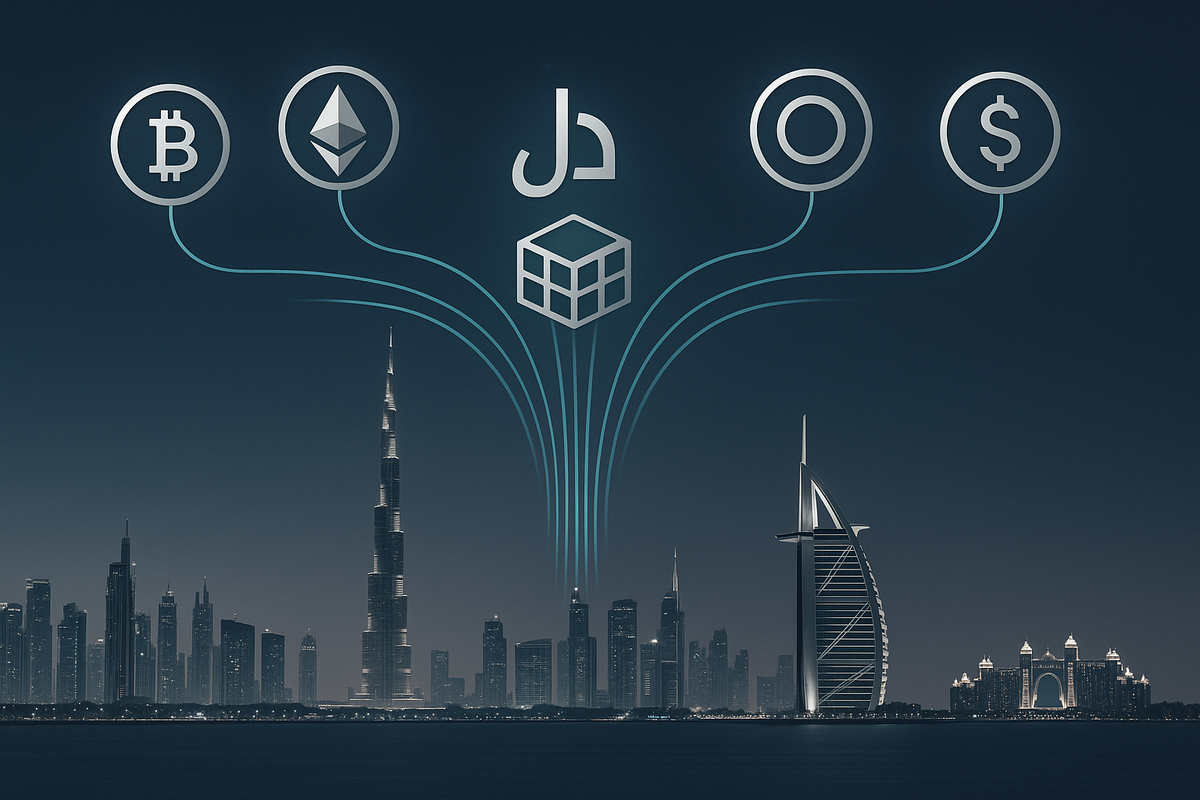How Dubai is Leading in Crypto Payments and Tokenized Real Estate
Dubai is driving crypto adoption with government-backed crypto payments and real-estate tokenization initiatives, creating a regulated digital-asset ecosystem and providing a blueprint for emerging economies across the globe.

In a landmark move, the Emirate of Dubai is making decisive strides in crypto integration and real-world asset innovation. From government service fees paid using cryptocurrency to the launch of a tokenized real estate platform, Dubai is shaping itself as a global leader in regulated digital finance. For other emerging markets like Crypto Pakistan, this model offers a blueprint for what’s possible when regulation, tech, and market access align.
On May 13, 2025, the Dubai Department of Finance (DOF) signed a Memorandum of Understanding (MoU) with Crypto.com to enable residents and businesses to pay government fees via cryptocurrency wallets. These payments will be converted into Emirati Dirhams (AED) and credited to government accounts in real time, supporting Dubai’s “Cashless Strategy,” which aims to make 90% of transactions cashless by 2026.
In a pilot transaction, the partnership with the Dubai Land Department (DLD) and Emirates NBD via the Dubai Pay platform successfully processed government-fees in cryptocurrency with fiat settlement.
This move is more than symbolic. It demonstrates trust in stablecoins as payment rails and provides a regulated gateway between crypto ecosystems and public finance. Dubai’s infrastructure and regulatory foundation give global legitimacy to digital asset use in government services.
Building on its payment innovations, Dubai is now applying blockchain to real estate. On May 25, 2025, the DLD launched the Prypco Mint platform in partnership with fintech firm Prypco and infrastructure provider Ctrl Alt. It allows investors to buy fractional ownership of properties starting from AED 2,000 (≈USD 540).
In May 2025, tokenized property sales through this platform reached approximately USD 399 million. The second offering sold out in just 1 minute 58 seconds, attracting 149 investors from 35 countries.
Dubai projects that up to USD 16 billion of its property market (about 7%) will be tokenized by 2033. The initiative sits on the XRP Ledger (XRPL) and is integrated with official land-registry systems.
These transactions show the power of tokenization: liquidity, global access, reduced entry cost, and digital ownership of traditionally illiquid assets.
Critical to Dubai’s success is its regulatory ecosystem. The Virtual Assets Regulatory Authority (VARA) has issued updated rulebooks enabling real-world-asset tokenization. These regulations help institutionalize trust in digital assets.
In the payments context, Crypto.com’s initiative obtained in-principle approval from the Central Bank of the UAE to operate stored-value facilities, facilitating crypto-fiat seamless flows.
These features, clear regulation, institutional licensing, and government backing, set Dubai apart from many jurisdictions still grappling with crypto-policy ambiguity.
As Pakistan moves forward with the establishment of the Pakistan Virtual Assets Regulatory Authority (PVARA), and increasing blockchain adoption, Dubai’s playbook offers several lessons:
- Seamless fiat-crypto integration: A legal on-ramp for individuals and businesses to use digital-asset payments without speculation risk.
- Tokenization of real-world assets: Access to property investment can be democratized through fractional ownership, opening global capital flow.
- Regulation as enabler: Clarity draws investment, innovation, and builds trust; regulatory uncertainty drives caution.
Pakistan’s large youth tech-community, rising freelancing ecosystem, and strong crypto adoption rank among the world’s top. With clear frameworks, it can partner with tokenization platforms or digital-asset firms, enabling new fintech growth beyond speculation.
Dubai’s embrace of crypto payments and real-estate tokenization isn’t hype, it’s execution. By combining regulation, technology, and market access, the Emirate has built real infrastructure for digital assets at scale. For Pakistan and other emerging markets, the time is now to watch, learn, and adapt. The future of finance is being built, and Dubai is one of its first anchor points.




